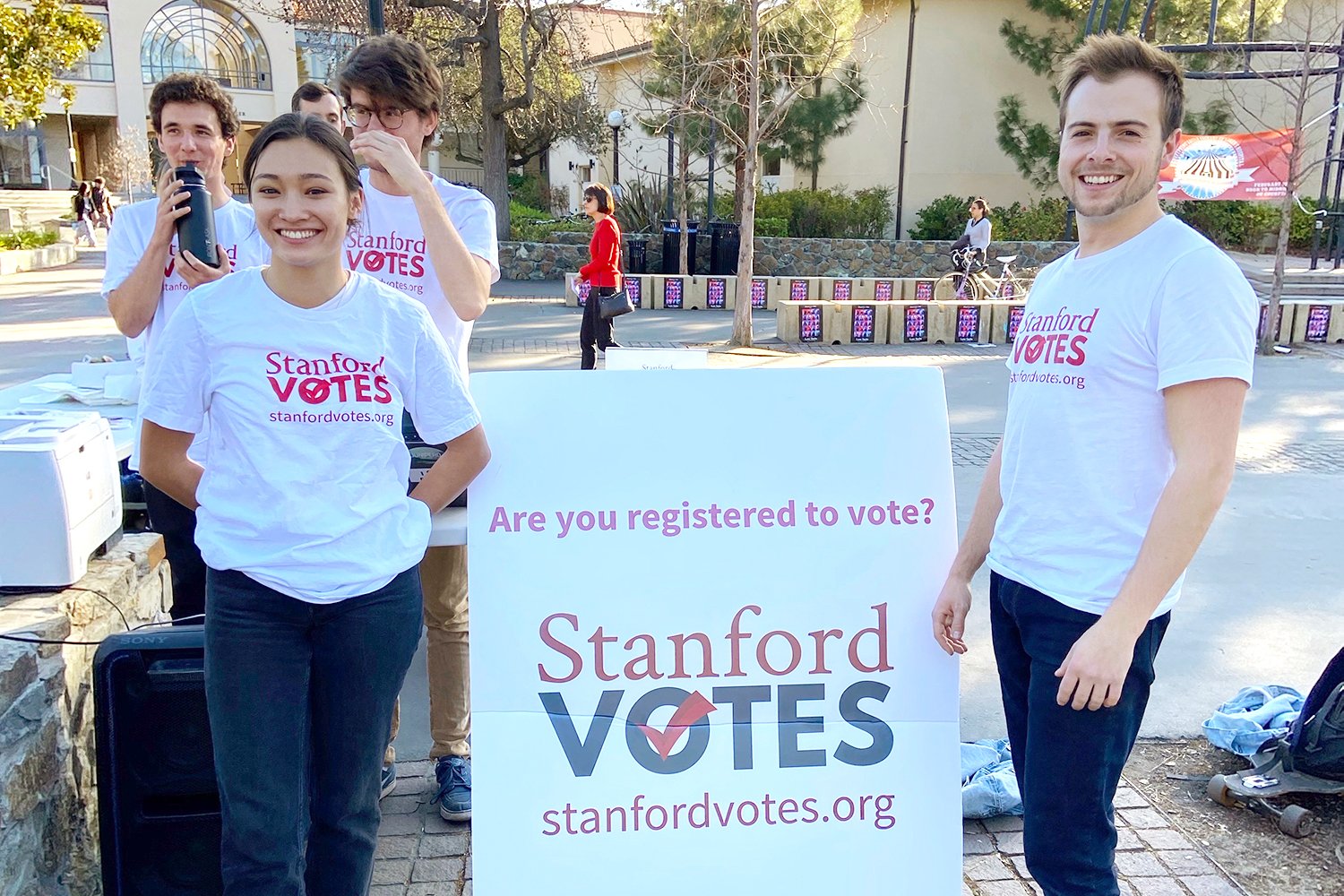Eligible voters will now have the option to register and vote in the presidential primary election at the new Santa Clara County Vote Center at Tressider Union between this Friday and Mar. 3, otherwise known as Super Tuesday.
The new vote center, which is hosted by the President’s Office, is the latest in a series of initiatives by StanfordVotes aimed at improving civic engagement and fostering a culture of political participation on campus. Stanford is also now a national leader in the number of students registered on TurboVote, a platform that facilitates voter registration but does not directly register students to vote.
Chase Small ’22, StanfordVotes co-director, called the center “a huge step in reducing barriers to voting for our community.”
In previous elections, Tresidder has been a polling place on Election Day but not a vote center for early voting or registration.
StanfordVotes’s efforts follow historically low voter turnout rates on campus. In 2018, 42.7% of eligible students voted in the midterm elections. In the 2016 presidential election, the voting rate among eligible Stanford students was less than 50%. In the 2014 midterm elections, fewer than one in five eligible Stanford students cast a ballot.
Stanford students who are eligible to vote in California can choose to vote either in Santa Clara County, using a campus address, or absentee, using a permanent home address.
Students who choose to vote in Santa Clara County “can register and vote right at Tresidder,” Small said. “It’s about as easy as it gets.”
TurboVote engagement at a high
In addition to the new voting center, StanfordVotes has overseen the widespread adoption of TurboVote, an online platform that provides information and resources for individuals interested in registering to vote and casting a ballot. While TurboVote facilitates voter registration by providing users with information, forms and instructions for registration, the platform does not directly register citizens to vote.
Small said that StanfordVotes’s efforts — including a mandatory enrollment hold on Axess that presented students with the TurboVote interface — have already resulted in “a huge spike in TurboVote sign-ups.”
5,130 students registered on through Stanford’s TurboVote platform from Jan. 1 through Feb. 19, Megan Fogarty, former deputy executive director at the Haas Center for Public Service, wrote in a statement to The Daily.
Stanford is currently ranked first in the country in the number of students registered on TurboVote, according to Small. The University of Michigan, which enrolls over 30,000 undergraduates, is in next place with 1,053 registrations in the same time period.
A student registering on TurboVote does not necessarily result in the student registering to vote, Fogarty noted.
“A reader might assume that ‘registered on TurboVote’ means registered to vote,” she wrote. “Our team just discussed being very clear to say that ‘registered X users on TurboVote, a platform where people can sign up to receive election reminders, get registered to vote, and apply for absentee ballots.’”
Still, Small said, the influx of TurboVote signups since the beginning of the new year is a strong first step toward electoral participation among Stanford students. He also said that historically low turnout rates on campus did not necessarily imply a lack of student interest in politics.
“College students vote at disproportionately low rates,” Small said. Low turnout rates among students “often result from the confusing nature of our voting system, differences in process across states and having other immediate priorities like keeping up with school.”
And voting is only one part of StanfordVotes’s long-term goals, according to Small.
In the future, StanfordVotes “will host events to encourage students to contact their representatives and think critically about how they can interact with our democracy in their life and career,” he said.
Small expressed optimism about the future of civic engagement on campus and the prospect of removing additional barriers to political participation.
“I have been honored to get to help out in reducing these barriers and encouraging students from all backgrounds and across all disciplines to actively engage in our democracy,” Small said.
Contact Jackie O’Neil at jroneil ‘at’ stanford.edu.
